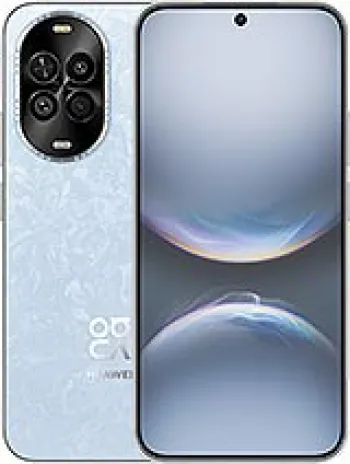
Overview
The Huawei Y300II is a budget-friendly smartphone that was part of the company's lineup released in 2014. Its specifications make it suitable for basic smartphone activities, appealing particularly to users looking for a simple device at an economic price point. Although it has been discontinued, its features are still relevant for analyzing the evolution of budget smartphones.
Network Capabilities
The device supports GSM and HSPA network technologies. The supported 2G bands include GSM 850, 900, 1800, and 1900, while the 3G bands include HSDPA 850, 1900, and 2100. The device offers a data speed of HSPA 7.2/5.76 Mbps, which was quite standard for entry-level devices at the time of its release.
Launch Information
Announced in the second quarter of 2014, the Huawei Y300II was released in the same quarter. Despite its discontinuation, it serves as a testament to Huawei's foray into budget smartphones with alternative operating systems like Firefox OS.
Design and Build
The phone features a classic design typical of smartphones from the early 2010s with a compact form factor. Although specific dimensions and weight are not listed, it utilizes a Mini-SIM card. This choice reflects the era's standard before the transition to smaller SIM cards.
Display
The Huawei Y300II is equipped with a 4.0-inch IPS LCD display, offering a resolution of 480 x 800 pixels with an approximate density of 233 pixels per inch. While not designed for high definition, the screen is satisfactory for basic usage, such as browsing the internet and using applications.
Platform and Performance
The phone runs on Firefox OS, reflecting Huawei's experimentation with various operating systems beyond the typical Android and Windows systems found on its other models. Powering the device is a Dual-core 1.0 GHz CPU, allowing for simple multitasking and app usage that is expected in this category of smartphones.
Memory and Storage
The internal storage of the Huawei Y300II is 4GB, coupled with 512MB of RAM. For users requiring additional storage, a dedicated microSDHC card slot is available. This configuration was typical for entry-level smartphones and suited to users who required a phone for essential functions.
Camera Specifications
The smartphone features a 5 MP rear camera, a common specification for budget phones of that time, allowing for basic photography needs. There is a VGA front camera, suitable for simple video calls but limited in photo capabilities.
Sound and Multimedia
The device provides standard sound options including a loudspeaker and a 3.5mm audio jack. These features allow users to use traditional wired headphones, which were predominant before the widespread adoption of wireless solutions.
Connectivity Options
Connectivity on the Y300II includes Wi-Fi 802.11 b/g/n for internet access, Bluetooth 2.1 with A2DP for short-distance communication, and GPS for navigation. The device does not support NFC, but it does include an FM radio and a microUSB 2.0 port for charging and data transfer.
Sensors and Additional Features
The smartphone is equipped with an accelerometer, essential for screen orientation and basic motion detection. This sensor supports the primary functions expected from a budget smartphone.
Battery Life
Powering the device is a removable Li-Ion 1730 mAh battery. On standby, the battery can last up to 350 hours, while users can expect a talk time of approximately 5 hours and 20 minutes. Such performance was adequate for daily usage under light to moderate load.
Color Variants
The Huawei Y300II is available in a sleek black color, appealing to a wide audience preferring a classic, understated aesthetic.
Conclusion
The Huawei Y300II serves as an example of early budget smartphones that provided essential connectivity and functionality at a minimal cost. Its inclusion of Firefox OS showcases Huawei’s exploration of different operating systems. While it lacks the advanced features of modern smartphones, it meets the basic communication and digital needs of its intended user base.
Key Features of Huawei Y300II
- Network technology support: GSM / HSPA
- 4.0-inch IPS LCD display with a resolution of 480 x 800 pixels
- Running on Firefox OS
- Dual-core 1.0 GHz processor
- Expandable storage via microSDHC card slot
- 5 MP main camera
- VGA selfie camera
- Includes GPS technology
- FM Radio support
- Removable Li-Ion 1730 mAh battery
- Standard 3.5mm headphone jack
- Includes accelerometer sensor
Disadvantages of Huawei Y300II
- Discontinued model, leading to lack of software updates and support.
- No 4G LTE support, only GSM/HSPA networks.
- Limited internal storage of 4GB with only 512MB RAM, which restricts multitasking and app usage.
- Low-resolution display (480 x 800 pixels) with a pixel density of approximately 233 ppi.
- Basic camera setup with a single 5 MP main camera and VGA front camera.
- Runs on Firefox OS, which has limited app availability compared to Android or iOS.
- Older Bluetooth version 2.1, which may not support newer Bluetooth accessories.
- No NFC support for contactless payment options.
- Battery capacity of 1730 mAh, which may not last a full day under heavy usage.

View Also
More Phones
All Rights Reserved +14268 Phones © Mobilawy 2025

























